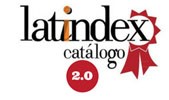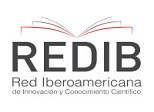The Game as a Didactic Strategy to Promote Cognitive Development in the Field of Mathematical Relations of Children aged 4 to 5 Years
DOI:
https://doi.org/10.69890/hallazgos21.v8i3.633Keywords:
Game, didactic strategy, cognitive development, mathAbstract
Initial Education is considered the starting point of the process of integral and progressive development of the human being. This formative process contemplates promoting cognitive, affective, psychomotor, social, identity and autonomy aspects of children from 3 to 5 years of age, being the game the main strategy for the achievement of teaching and learning, which is why the present investigation focused on the game as a didactic strategy to promote cognitive development in the field of mathematical relationships. The purpose of the study was to develop a didactic strategy based on the game to promote cognitive development in the field of development and learning of logical-mathematical relationships in children from 4 to 5 years of age, an inquiry that subscribed to a mixed research approach through a descriptive scope and field study, under a cross-sectional non-experimental design. In addition, inductive, deductive, and analytical methods were used. As techniques, a survey, observation, and interview were used. The sample selection procedure that determined the population distribution was of an intentional non-probabilistic type, being made up of 11 children aged 4 and 5 years enrolled in Initial Education, the 11 respective representatives, and the director of the 25 de Julio educational institution. The results showed that there are incidents in the development of cognitive skills in the field of mathematical relationships.
References
Andrade, A. (2020). El juego y su importancia cultural en el aprendizaje de los niños en Educación Inicial. Revista Ciencia e Investigación, 5(2), 132-149. https://doi.org/10.5281/zenodo.3820949
Arias Gonzáles, J.L. (2020). Técnicas e Instrumentos de Investigación Científica (1ra ed.). Perú. Enfoques Consulting EIRL. www.cienciaysociedad.org
Asamblea Nacional Constituyente. (2008). Constitución de la República del Ecuador 2008. https://www.defensa.gob.ec/wp-content/uploads/downloads/2021/02/Constitucion-de-la-Republica-del-Ecuador_act_ene-2021.pdf
Celi Rojas, S., Sánchez, V., Quilca Terán, M., & Paladines Benítez, M. (2021). Estrategias didácticas para el desarrollo del pensamiento lógico matemático en niños de educación inicial. Horizontes, 5 (19), 826- 842. https://doi.org/10.33996/revistahorizontes.v5i19.240
García, F. (2021). Juego, plasticidad cerebral y habilidades cognitivas. Salud y Bienestar Colectivo, 5 (1), 90-104.
Ley Orgánica de Educación Intercultural. (2014). Ministerio de Educación. Dirección Nacional de Normativa Jurídico Educativa. Registro Oficial. https://educacion.gob.ec/wp-content/uploads/downloads/2017/02/Ley_Organica_de_Educacion_Intercultural_LOEI_codificado.pdf
Ministerio de Educación del Ecuador. (2014). Currículo de Educación Inicial, 2014. Ministerio de Educación. https://educacion.gob.ec/wp-content/uploads/downloads/2014/06/curriculo-educacion-inicial-lowres.pdf
Monteza, D. (2022). Estrategias didácticas para el pensamiento creativo en estudiantes de secundaria: una revisión sistemática. Revista Innova Educación, 4(1), 121-134. file:///C:/Users/HP/Downloads/Dialnet-EstrategiasDidacticasParaElPensamientoCreativoEnEs-8245619%20(1).pdf
Morales, A., Imaginario, A., Delgado, I., Andrés, E., & Coelho, F. (2017, May 2). Significado de Pensamiento lógico. https://www.significados.com/pensamiento-logico/
Moreno Pinado, W., Velázquez Tejeda, M. (2017). Estrategia Didáctica para Desarrollar el Pensamiento Crítico. REICE Revista Iberoamericana Sobre Calidad, Eficacia Y Cambio En Educación, 15(2), 53-73. https://doi.org/10.15366/reice2017.15.2.003
Quinaluisa, D., & Quinatoa, H. (2022). Los juegos de construcción en el desarrollo lógico matemático de los niños y niñas de 4 a 5 años de edad (Tesis de maestría). Universidad Central del Ecuador, Quito, Ecuador.
Sandoval, M., Simón, C., & Echeita, G. (2020). ¿Qué me ayuda a aprender y participar?: Herramientas para recoger las voces de los estudiantes. Revista de Educación Inclusiva, 13 (1), 12-27.
Vidal, N. (2020). Estrategias didácticas para la virtualización del proceso enseñanza aprendizaje en tiempos de COVID-19. Revista Cubana de Educación Médica Superior, 34 (3), 25-34. https://www.medigraphic.com/pdfs/educacion/cem-2020/cem203o.pdf
Published
How to Cite
Issue
Section
License
Los artículos enviados a la Revista Científica Hallazgos21 deberán ser totalmente originales e inéditos.
Los autores son los responsables de los textos y las imágenes incluidas en los artículos y no necesariamente reflejan el pensamiento de la editorial o de la Pontificia Universidad Católica del Ecuador, Sede Esmeraldas (PUCESE).
Los autores disponen cederle a la Revista Científica Hallazgos21 todos los derechos inherentes para la edición, publicación y distribución o divulgación del mismo.
Se autoriza a las revistas firmantes de los acuerdos de Encuentros de Revistas Latinoamericanas para reproducir en parte o totalmente los artículos con la sola mención de la fuente claramente señalada.







